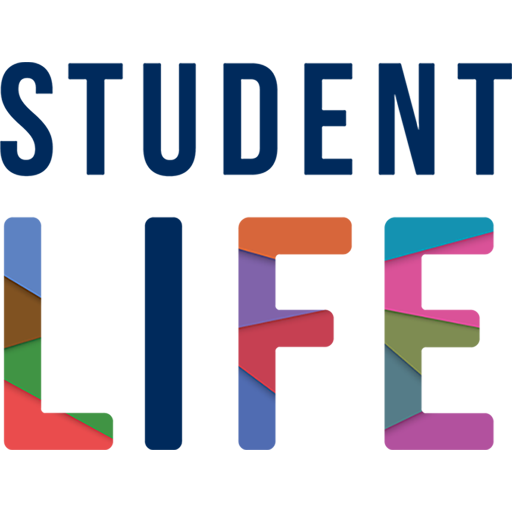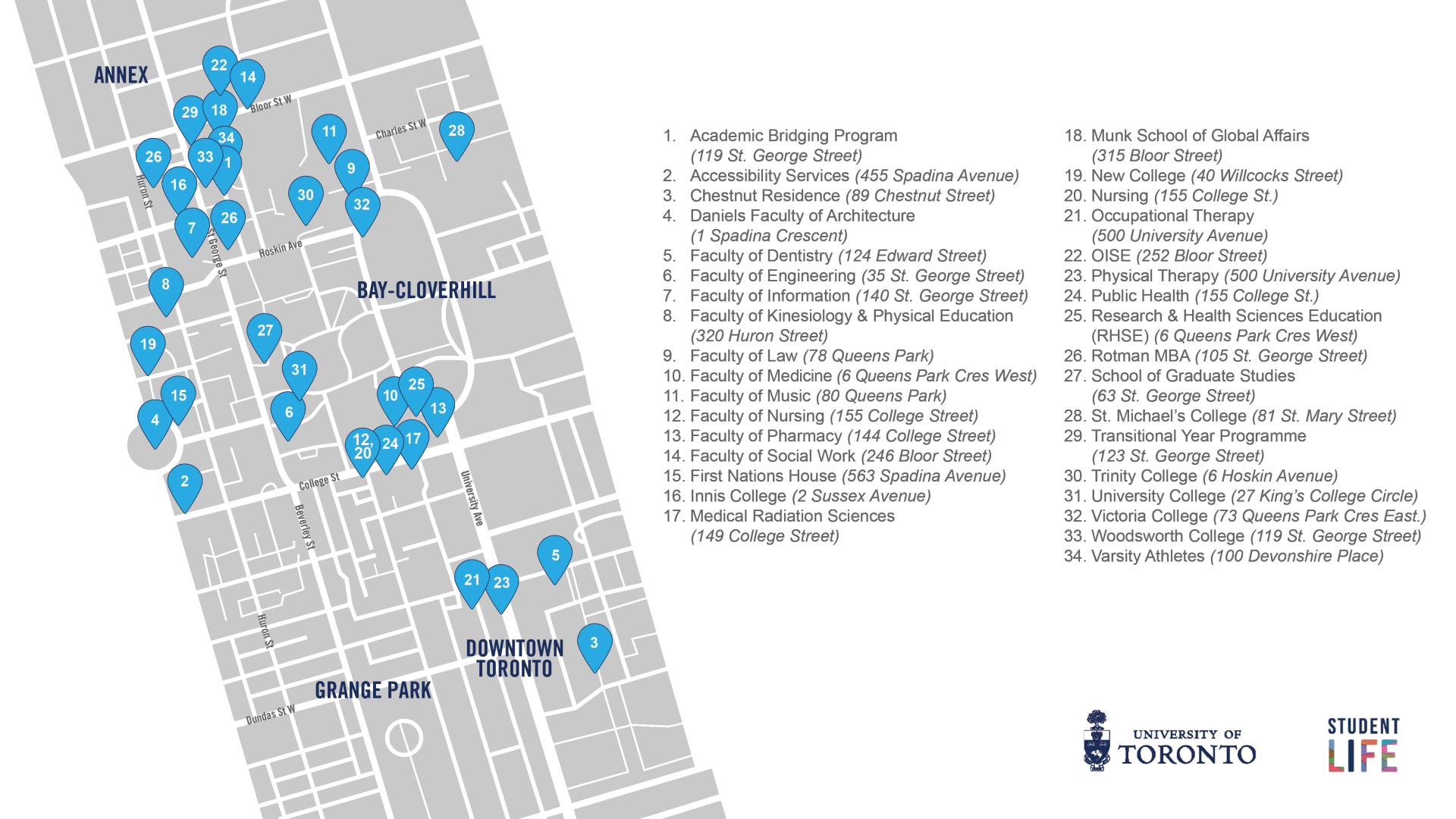Student Life professionals play a pivotal role in extending access to programs and services to students across various locations on campus, known as the “On Location” model. This model involves health & wellness counsellors, accessibility advisors, learning strategists and career educators collaborating to offer tailored support to students in specific academic contexts and settings.
Recognizing the diversity and complexity of U of T, the On Location model is not a one-size-fits-all approach. Instead, it adapts to the unique characteristics of each location on campus. At the St. George campus, learning strategists, accessibility advisors, career educators, and health & wellness counsellors are strategically located at 34 faculties, colleges, residences and units across campus. Additionally, each faculty and college has designated immigration advisors for staff and faculty contact, and international students can choose between remote or in-person meetings based on their preference.
Deeply integrated into various campus environments, these professionals ensure students seamlessly access the services they require, when and where they need them. The On Location model necessitates a deep understanding of local cultures and processes, collaboration with local partners and offices, and attention to the specific needs of students in diverse academic contexts.
The demand for support in these contexts is significant, with more than 26,0001 interactions between staff and students recorded last year alone. Interactions include one-to-one appointments, workshop attendance, phone calls and email conversations.
Since the launch of On Location services in 2014 by Student Life St. George, Career Exploration & Education has observed an 80 per cent increase in the number of career supports offered through these partnerships. In the academic year 2022-23, their On Location programming supported more students compared to in-house or centrally offered career education workshops. This highlights the value and critical nature of the On Location model and its partnerships in providing essential career programming and support for students.
In addition to one-to-one support, On Location staff have also proactively developed community-focused programs that complement individual support. For example, Academic Success learning strategists have introduced course and subject-specific supports, student-facing learning supports in collaboration with course instructors, local accountability group programming, and just-in-time learning strategies shared by peers in the Class Ambassador program, among others.
To further enhance the On Location model, Accessibility Services has expanded reach with partners to include two individualized On Location teams; Faculty of Arts & Science and Professional Faculties/ School of Graduate Studies. This expansion ensures that On Location Accessibility Advisors can provide specialized disability-related support with an extensive knowledge of faculties and departments where they are located.
On Location accessibility advisors regularly attend registrarial staff meetings, collaborate with partners on key themes unique to each location, and provide integral faculty and staff-facing support when navigating complex cases around students with disabilities. These efforts present opportunities for training and education on creating more inclusive learning environments for students with disabilities.
Health & wellness counsellors play a pivotal role in fostering the overall well-being of students across various campus locations. The on-site counsellors emphasize a holistic wellness perspective rather than strictly focusing on clinical issues, cultivating a non-pathological and de-stigmatizing stance, and offer support in a variety of ways to meet the diverse needs of students. Counsellors deliver workshops to help students build skills to cope with stress, engage in outreach to increase awareness of mental health resources, and provide one-to-one appointments for personalized support. These appointments are booked the same day or the next day as single counselling sessions, and students can return for additional appointments at any time.
This counselling approach is centered on strengths, resilience and skills-building. These professionals use an evidence-based and integrative counselling/psychotherapy approach, including modalities such as Cognitive Behavioural Therapy and Solution-Focused Therapy. This approach is tailored to address mild to mild-moderate emotional or psychosocial difficulties that students may be experiencing, which could impact their academic performance. These difficulties range from feelings of sadness, anxiety and stress to challenges in relationships, including those related to gender identity and sexuality.
Health & wellness counsellors also engage in consultation with staff and faculty, fostering relationships with academic advisors and local student life/affairs staff. This just-in-time and early intervention approach benefits students and indirectly supports staff and faculty, particularly during high-stress academic periods. The combined services of Academic Success, Accessibility Service, Career Exploration & Education, and Health & Wellness ensures that services are adapted to the unique needs of each campus location, facilitating referrals to resources throughout the community and each other, and contributing to a comprehensive and supportive ecosystem for students.

